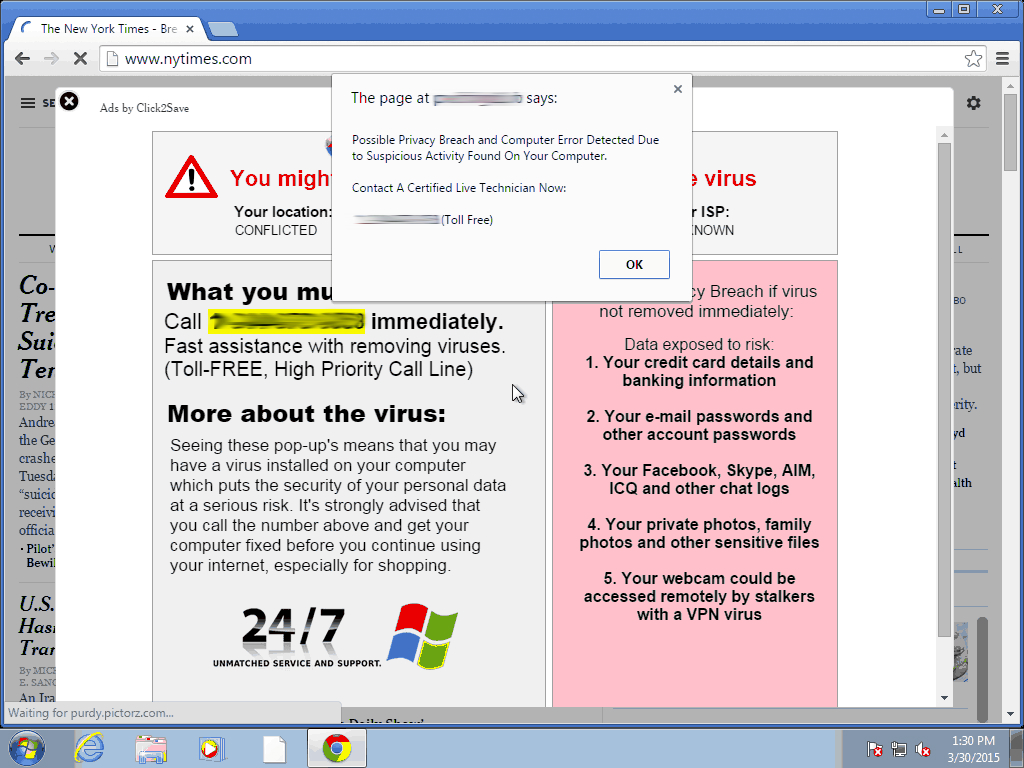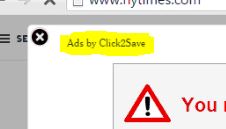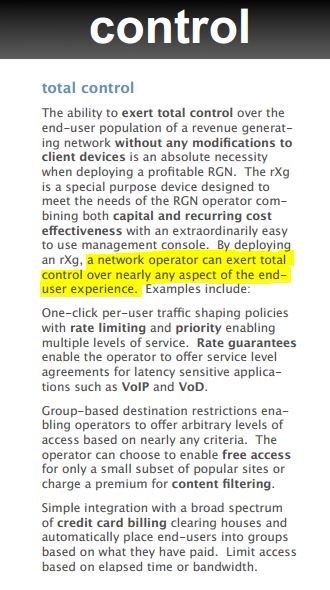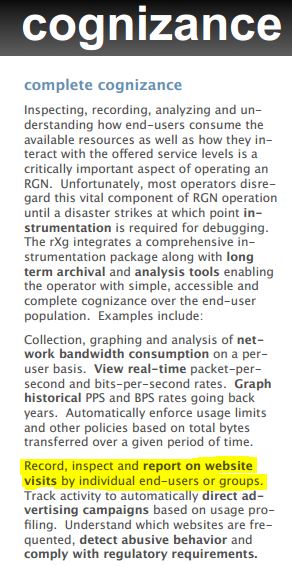Yes It Is A Scam - Don't Call That Number!
- Published in Security
Recently we've had several people come to us having been hit by a nasty piece of Adware. This particular pop-up is insidious as it's a two part pop-up, see the attached screenshot. First you have the large underlying pop-up with the information that says "Call XXX-XXX-XXXX immediately."

Also take notice of the "24/7 Unmatched Service and Support". With a quick glance you might mistake for the image for a Windows logo, but upon further inspection they don't match.
 Not Windows Logo
Not Windows Logo  Proper Windows Logo
Proper Windows Logo
Next take a look at the smaller pop-up on top of the large one; this one serves two purposes, first is to reiterate you must call them NOW and second is to amp up the fear, "Possibly Privacy Breach and Computer Error Detected Due to Suspicious Activity Found On Your Computer.".
But in all of the fear that your computer may now be breached most people over look a very important piece of information found in this example in the upper left, but could be found in any number of locations depending on what service the Adware is being served through.

"Ads by Click2Save" Wait!?! What?!? This pop-up is nothing more than a paid for advertisement??? Exactly, it's nothing more than a scam to get you call that number and have one of two scenarios play out. Either they are going to try and gain access to your personal information in order to steal it or they are going to try and sell you fake software or services that you don't actually need, at a cost to you of hundreds of dollars.
(See our article on the similar tech support phone scam at Tech Support Scams - Don't Be A Victim.)
So you find yourself with this pop-up on your screen, you've realized it's fake, you're not going to be calling these thieves, but how do you get the pop-up to go away? As if the ad itself isn't bad enough, this is one of those Ads that is bound and determined to stay with you. Clicking on the "X" seems to take most people into an irritating loop where the two windows continually to appear, one on top of the other. With testing we have been able to successfully close the Ad by simultaneously clicking the "X" and pressing "Esc". If that doesn't work try going to your task manager and forcing the browser to shut down, End Task, that way. If that still doesn't work you may be left with the only option of shutting down your computer.
Once you've successfully closed the Ad you've likely avoided any danger, but you can always take it to a local computer company, like Top Speed Computer Service, to make sure no damage has been done. Pass along to your friends and family to make sure they are not victimized by this scam either!
What to do if you've been scammed?
First if you’ve found this article and are still on the line with them hang up now and cut off their remote access. If you’re unsure how to cut their remote access, the sure fire way is to restart your computer.
If you've already had this happen, called them, given them access to your computer, paid them money or not, there are several places you should report them to. File complaints with the FTC, Fraud.Org the National Consumers League, your local Attorney General, and if you’ve been defrauded of money your local law enforcement as well. Fraud.Org is an especially good one to file with as they work to share information with many jurisdictions. Local law enforcement is harder as they really only deal locally and scams like this work on a global scale not a local one.
You will also want to have your computer checked out by a local technical company in case anything malicious was installed on your computer during the so called technical support.
It is always advisable to do business with a local computer company, you never know what you're going to find on the other end of that Internet / phone connection!



